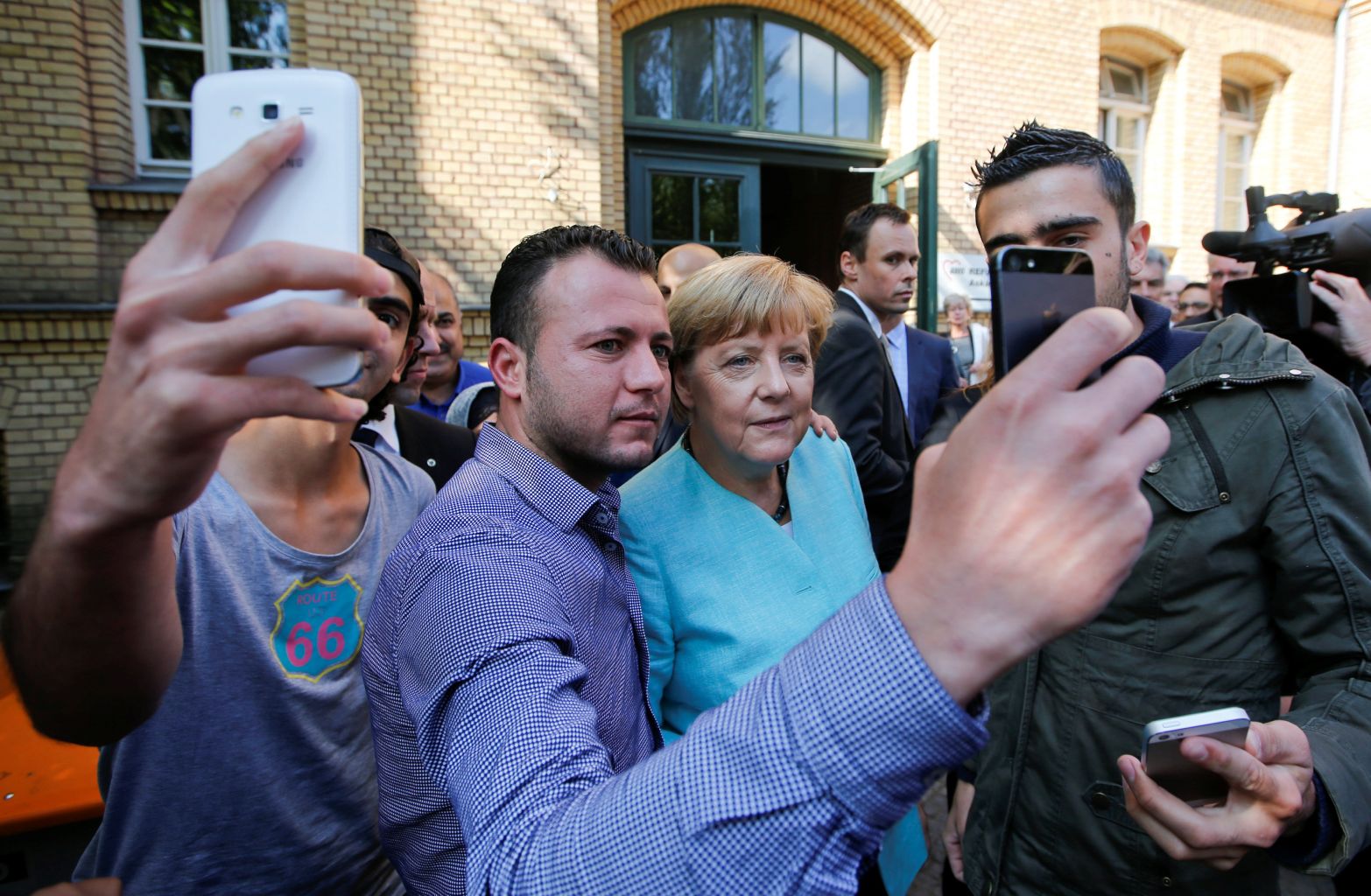Race on as German leader Angela Merkel opens path for succession
Sign up now: Get ST's newsletters delivered to your inbox

German leader Angela Merkel had enjoyed the support of Germans as a guarantor of stability and prosperity, having steered the country through financial crises.
PHOTO: REUTERS
Follow topic:
BERLIN (AFP) - Dr Angela Merkel's bombshell announcement of her plans to step down as German chancellor in 2021 has unleashed a succession race that will be watched closely within Germany and beyond.
Dr Merkel on Monday (Oct 29) said she would not stand for re-election in December as leader of her centre-right Christian Democratic Union (CDU) party. Neither would she seek a new mandate as Germany's leader.
She hoped her decision would end the strife that threatened so often to tear her loveless coalition apart, and focus the government on its task of running Europe's biggest economy.
The planned departure of the veteran chancellor, in power for 13 years and at the helm of her party for 18, set hopefuls jostling for position as her successor.
After she outlined her intentions to party top brass, three candidates reportedly indicated their plans to stand for the job, including CDU general secretary Annegret Kramp-Karrenbauer, health minister Jens Spahn and former chief of the party's parliamentary group Friedrich Merz.
Another name touted by German media as a likely fourth is Mr Armin Laschet, who is also the state premier of Germany's most populous region North Rhine-Westphalia.
Mr Laschet told reporters on Monday he has not declared his candidacy, as it was "more important at this time to reflect, to see what (Dr Merkel's departure) means for the party and how the party can be kept united".
For Frankfurter Allgemeine Zeitung columnist Berthold Kohler, the Chancellor has played a well-timed move.
"Merkel has done well to give up the party chair post. The CDU has been revived," he wrote.
WANING POWER
Dr Merkel had enjoyed the support of Germans as a guarantor of stability and prosperity, having steered the country through financial crises and keeping Europe's biggest economy humming with unemployment striking post-reunification record lows month after month.
But her power has been on the wane since her 2015 decision to keep Germany's borders open at the height of Europe's migrant crisis, ultimately allowing in more than one million asylum seekers.
The mass arrivals left a deep chasm in German society, and fuelled the rise of the far-right AfD, fundamentally redrawing the political map.
While Dr Merkel has essentially given her party three years to put the succession in place, her departure may yet be precipitated if her junior coalition partner, the Social Democratic Party (SPD), loses patience and pulls the plug prematurely.
Dr Merkel's party and their Bavarian Christian Social Union (CSU) allies been at the receiving end of voter anger - be it stemming from the migrant influx or bickering within the coalition. The SPD in particular has recorded a haemorrhage of voters.
Plummeting support for the SPD has left the party torn internally over its decision to join the government.
After a drubbing at two regional polls in as many weeks, the SPD has signalled it may walk away if Dr Merkel's centre-right alliance of CDU and Bavarian allies CSU fails to meet its demands.
By September 2019, the party "will be able to see whether this government is still the right place for us", SPD chief Andrea Nahles said.
With the new CDU chief to be elected by the party as soon as December, it remains to be seen if Dr Merkel's successor would be able to keep the SPD in the coalition until the next general election, due in 2021.
While Ms Kramp-Karrenbauer is a Merkel loyalist and likely to continue on her moderate path, Mr Spahn or Mr Merz could shift the party further to the right, making cohabitation tougher with the centre-left SPD.
Dr Merkel herself has shied away from naming a successor.
"I will accept any democratic decision taken by my party," she said.

